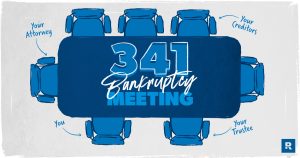Cavan Images/Getty Images
Key takeaways
- Lenders review credit history and score to determine loan eligibility and interest rates, so it’s important to have a good credit score.
- Personal loans can be obtained from banks, credit unions and online lenders, each with its own requirements and benefits.
- It’s important to consider the long-term costs of a personal loan, including interest and repayment terms, before deciding on a lender.
If you need $5,000 to pay for medical expenses, home improvements, an emergency or to consolidate high-interest debt, taking out a personal loan is one potential solution. Most lenders offer quick funding — in some cases, funds can be deposited into your bank account as soon as the same business day.
However, understand what you may need to qualify, where to get one, how to shop for the best personal loan rates and how to estimate your borrowing costs before you apply.
How to get a $5,000 personal loan
With $5,000 on the line, it is essential that you have a firm grasp of the funding process and what you are agreeing to over the long term. The process of getting a personal loan requires you to check your credit, compare lenders, get prequalified and submit your application.
Keep in mind that lenders review your credit score and credit history to assess how likely you are to repay the loan. The average personal loan interest rate was between 10.73 and 12.50 percent for excellent credit borrowers and up to 32 percent for poor credit applicants. If you have a minimal credit history, comparing bad credit personal loan rates is essential.
You need good to excellent credit to qualify for a lender’s lowest rates. If you have bad credit, a lender may charge you a high interest rate or reject your application. When you submit an application, you must provide proof of identity and necessary documents confirming your address.
Where to get a $5,000 personal loan
You can get a $5,000 personal loan by applying for financing with a bank, credit union or online lender. Each potential lender comes with its own eligibility requirements — such as a minimum credit score or debt-to-income ratio limit. Simply, you have to show the lender that you have the ability to manage and repay the loan effectively.
Banks
Working with a bank tends to offer an in-person experience that choosing an online lender does not. A bank-backed personal loan is an especially strong choice for borrowers who already have an account with an institution that offers a personal loan that fits their needs. This can ease the application process and may even carry additional discounts.
TD Bank
Bankrate’s view
TD Bank offers loans starting at $2,000 and has a starting interest rate of 8.99 percent. It also earns a high Bankrate Score of 4.7 for its 24/7 customer service, perks and benefits.
Pros
- Competitive starting APRs.
- Fast funding.
- Customer service.
Cons
- Limited state availability.
- Few requirements disclosed.
Credit unions
A credit union differs from a bank in the sense that it is a member-owned, not-for-profit institution. In order to borrow from a credit union, you must first become a member, which typically only requires a small fee. Many times, credit unions offer more competitive rates than other lending options.
An unsecured fixed-rate loan with a 36-month term carried a national average of 10.78 with a credit union versus 11.37 percent with a bank, according to the National Credit Union Administration (NCUA).
PenFed
Bankrate’s view
If you are interested in borrowing from a credit union, PenFed is well regarded for its competitive rates, starting at 7.99 percent, and its expansive customer support. Borrowers can also apply with a co-borrower, which can increase approval odds for those with minimal credit.
Pros
- Fast funding timeline.
- Minimal fees.
- Joint applications.
Cons
- Membership required.
- Undisclosed eligibility criteria.
Online lenders
When borrowing from an online lender, the funding process can be faster than other routes — as soon as one day in some cases. This is a strong option for those who feel comfortable navigating their finances online and without in-person customer service. Along with that, shopping online can make it easier to compare potential rates all from the convenience of your computer.
When shopping with online lenders, pay extra attention to the reputability of the company by checking reviews and using trusted sources like The Better Business Bureau.
LightStream
Bankrate’s view
Part of Truist Bank, LightStream is a fully online lender with few loan use restrictions. The lender has a loan minimum of $5,000 and a low starting rate. The most competitive rates will be given to those with strong credit.
Pros
- No fees.
- Rate-beat program.
- Fast funding.
Cons
- Long credit history required.
- Minimum loan amount on the higher side.
Costs of a $5,000 personal loan in the long term
How much you pay for a $5,000 loan depends mostly on your interest rate and repayment term. You can use a personal loan calculator to estimate the total cost.
Here are some examples of what your borrowing costs could look like for a three-year loan:
| Interest rate | Monthly payment | Total interest |
|---|---|---|
| 8 percent | $157 | $640.55 |
| 12 percent | $166 | $978.58 |
| 16 percent | $176 | $1,328.27 |
If you choose a longer loan term, it could lower your monthly payments but increase the amount of interest you pay over the life of the loan. For instance, here’s what your costs might look like for a five-year loan:
| Interest rate | Monthly payment | Total interest |
|---|---|---|
| 8 percent | $101 | $1,082.92 |
| 12 percent | $111 | $1,673.33 |
| 16 percent | $122 | $2,295.42 |
Alternatives to $5,000 personal loans
Getting a personal loan to cover a $5,000 expense isn’t the only route. For some, it might be better to consider a credit card or home equity loan. Consider some alternatives to a personal loan and who each option best fits your needs.
- Credit cards: While this option becomes riskier as spending increases, credit cards can be a sound choice if you are looking for payment flexibility. But to keep your credit score in check, ensure you aren’t over-extending your credit utilization ratio and work to pay it in full each month.
- Peer-to-peer lending: With this option you will apply directly to a group of investors instead of a financial institution. You will have increased approval odds than with a traditional lender.
How to determine if you need a $5,000 loan
First and foremost, you must consider if you need to take on debt or if you could save up for the expense. If you decide you do need to borrow, review your budget to determine if you can afford monthly loan payment. Borrowing only what you need can keep the total cost down. Plus, ensuring you can make your payments will help you avoid potential late fees and damage to your credit score.
That said, there are times when it might be beneficial to borrow more than you need. For instance, taking out a larger amount could make sense if you’re borrowing money for a home improvement project and don’t know the exact costs. If this is the case for you, find a lender with no prepayment fees so you can pay back any extra.
Read the full article here










